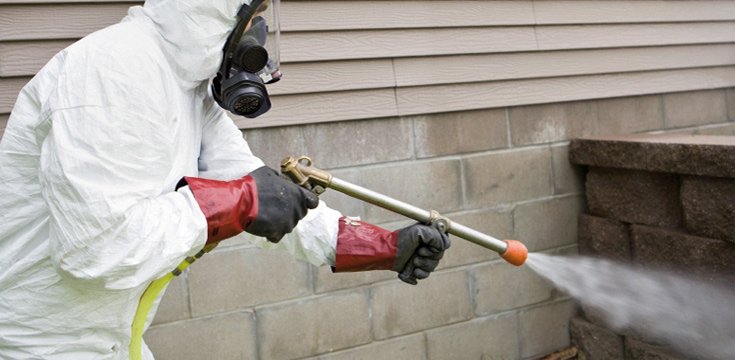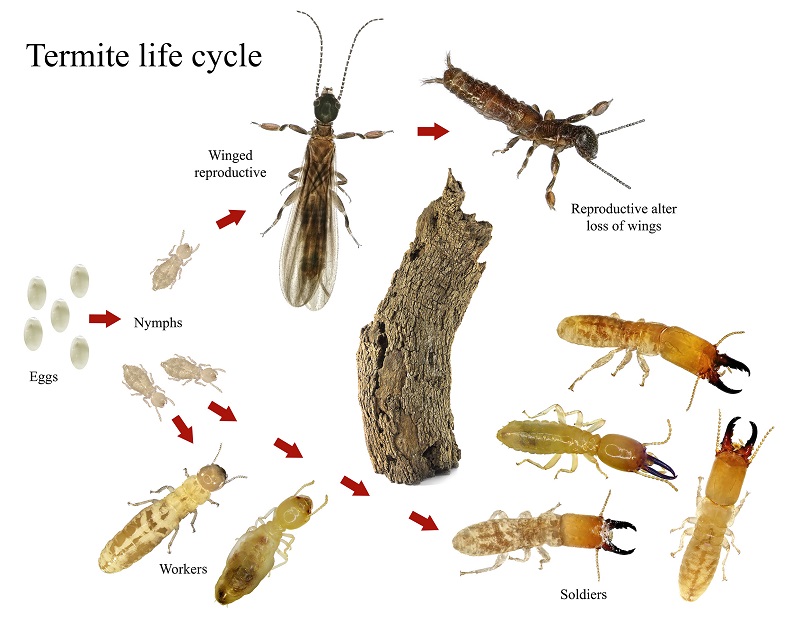Efficient Ant Control: Specialist Services to Get Rid Of Ant Infestations
Efficient Ant Control: Specialist Services to Get Rid Of Ant Infestations
Blog Article
Environmental Impact of Bug Control: Balancing Performance With Sustainability
The environmental impact of bug control is a critical issue that calls for a delicate equilibrium between attaining efficiency in handling pests and making sure sustainability of our ecosystems. As we aim to secure our crops, homes, and health from the hazards presented by pests, the approaches we use can unintentionally harm the setting. From using damaging chemicals that seep into our dirt and water to the unexpected consequences on non-target varieties, the consequences of conventional pest control techniques are far-reaching. There are emerging methods that supply hope for a much more lasting approach to pest administration. These services not just purpose to resolve the immediate bug problems however likewise consider the long-lasting wellness of our world.
Dangerous Chemicals in Bug Control
The use of hazardous chemicals in insect control poses significant environmental and health threats that necessitate mindful factor to consider and mitigation strategies. Herbicides, pesticides, and pesticides are frequently made use of to get rid of parasites, however their extensive application can bring about unintended consequences. These chemicals can contaminate soil, water sources, and the air, influencing not just the targeted parasites but likewise advantageous insects, wildlife, and human beings.

To resolve these dangers, integrated pest administration (IPM) strategies are being promoted as a more lasting choice. IPM includes a combination of approaches such as organic control, habitat adjustment, and the targeted use chemicals as a last hope (ant control hickory nc). By taking on a holistic method to pest control, we can reduce the ecological and health and wellness effects connected with unsafe chemicals while effectively handling pest populations
Influence on Non-Target Variety
Considering the unintentional repercussions of pest control techniques, the influence on non-target species is a crucial aspect that calls for detailed evaluation. While bug control actions aim to target particular bugs, various other microorganisms in the environment might be inadvertently impacted. Non-target species, including beneficial bugs, birds, mammals, and also plants, can endure indirect or direct injury from chemical applications or biological control techniques.
Chemicals can have dangerous or sub-lethal results on non-target varieties. For example, insecticides developed to battle a certain bug parasite may hurt pollinators like bees or all-natural killers such as ladybugs. Additionally, chemical residues can collect in the environment, affecting non-target organisms gradually. Biological control agents, if not species-specific, can posture threats to unexpected targets, interrupting the eco-friendly equilibrium.
To alleviate the effect on non-target types, incorporated insect monitoring (IPM) techniques that highlight a holistic technique to pest control are recommended. These approaches focus on the use of eco-friendly practices, lessening harm to advantageous organisms while efficiently handling pest populations. Performing thorough risk assessments and keeping track of the end results of parasite control efforts are necessary steps in safeguarding non-target types and advertising overall community wellness.
Dirt and Water Contamination
Unplanned ecological effects of parasite control methods expand past affecting non-target types, with substantial implications for dirt and water contamination - termite control. Pesticides, herbicides, and chemical fertilizers used in parasite control can seep right into the dirt and contaminate groundwater, posturing a threat to both terrestrial and aquatic ecological communities.
Water contamination is one more crucial concern associated with parasite control methods. To mitigate soil and water contamination from pest control activities, integrated pest management techniques that prioritize sustainability and reduce chemical inputs are essential.
Air Pollution From Pesticide Use
Direct exposure to airborne chemicals throughout agricultural applications poses a substantial concern for air pollution control measures. When pesticides are sprayed onto plants, they can volatilize right into the air and type unstable organic compounds (VOCs) and other airborne contaminants. These chemicals can add to the development of ground-level ozone, a major component of smog that can have harmful results on human health and wellness, plant efficiency, and total air quality. Furthermore, chemical drift, where pesticides are carried by the wind more tips here to unplanned areas, can lead to the contamination of neighboring ecological communities and water bodies.

Approaches for Lasting Pest Control
In the realm of agricultural methods, implementing lasting parasite control techniques is vital for preserving eco-friendly balance and securing crop yields. Sustainable bug control highlights using eco-friendly methods to handle bug populations effectively while minimizing damage to non-target microorganisms and ecosystems. Integrated Parasite Monitoring (IPM) is a commonly taken on technique that integrates organic, social, physical, and chemical control approaches to accomplish lasting insect monitoring solutions.
Plant rotation and diversity are additionally efficient methods to interrupt pest life cycles and develop much less beneficial conditions for parasites to grow. Eventually, by integrating these sustainable insect control techniques, farmers can achieve a balance between pest management efficiency and environmental stewardship.
Conclusion
Finally, the environmental impact of parasite control approaches must be very carefully thought about to stabilize performance with sustainability. Dangerous chemicals utilized in insect control can bring about dirt and water contamination, air pollution, and injury non-target types - termite control services. It is crucial to execute sustainable parasite control approaches to minimize these adverse effects on the setting and promote a much healthier ecosystem for future generations
By adopting an alternative strategy to pest control, we can reduce the environmental and health effects linked with dangerous chemicals while efficiently handling pest populations.

To alleviate the air pollution triggered by pesticide usage, it is vital to take on incorporated parasite monitoring approaches that prioritize the usage of non-chemical bug control methods, such as crop turning, all-natural predators, and resistant crop varieties. Lasting bug control emphasizes the use of ecologically friendly techniques to take care of insect populaces efficiently while minimizing injury to non-target organisms and environments. Integrated Pest Administration (IPM) is an extensively adopted method that incorporates biological, cultural, physical, and chemical control approaches to attain long-term bug monitoring solutions.
Report this page